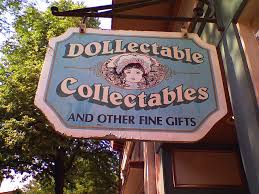
Your hobby may significantly affect your insurance needs. Hobbies often require a large investment intangible property and may even create some legal responsibility to other persons or their property.
Hobbyists: Collectors or Enthusiasts
Hobbies typically involve either collectors or enthusiasts. A collector acquires property that especially attracts him or her. Examples include people who collect stamps, art, coins, autos, antiques, comic books, baskets, dishes, glassware, sports memorabilia, etc. An enthusiast also collects a certain type of property. However, the enthusiast acquires property in order to pursue a given, physical (particularly sporting or artistic) activity. Examples are hunters, musicians, painters, sculptors, cyclists, and enthusiasts of many types, such as fans of model or radio control planes, helicopters, etc.
With collectors, the focus should be placed on the nature of the property being acquired. With enthusiasts, besides attention to property exposure, there should be equal emphasis on the liability exposure that is inherent in their activity.
Property Coverage Needs To be Created By Your Hobby

Your special property should be properly insured. Most homeowner policies provide minimal protection for the collectible property. Why? Items such as coins, stamps, antiques, guns, etc., are often fragile. Also, such property is very valuable in relation to its size. The value of collectibles kept in one room may be more valuable than all of the rest of your home’s contents. Regular homeowner coverage is not designed to handle high-valued property that is easily destroyed, lost or is vulnerable to theft.
Even when a collectible property is eligible for a policy’s full coverage, this may not be enough. You may want your special property to be covered from more causes of loss than your family room couch. It may be worthwhile to buy an endorsement to add additional coverage for your collectibles to your homeowner policy. Depending upon the type and value of your collectibles, you may even have to consider specialty coverage which typically makes consideration for replacement cost and for the property that appreciates in value.
Liability Coverage Needs To be Created By Your Hobby
If your hobby is more hands-on, then be sure you’re protected against any legal liability related to your activity. Ask yourself the following:
- Are there any dangers associated with the hobby?
- Does the hobby involve frequent travel to sites or meets?
- Does the activity attract frequent visitors to your home?
- Do you publish hobbyist newsletters or give advice to others?
- Do you actively sell or trade property on or away from your home?
- Does your activity involve equipment that’s inherently dangerous to others?
Get Serious About Protecting Your Hobby
Fortunately, many aspects of a hobby, especially legal liability, are covered by a homeowners policy. However, your activity may need special or even business coverage (see part 2 of this series). The way you spend your leisure time should be a happy diversion. Don’t let your enjoyment be interrupted by inadequate protection. Discuss your special interest with an insurance professional who has a special interest in meeting your coverage needs.
It’s likely that you depend on your homeowner or residential insurance policy to handle losses connected to your hobby or activities. A homeowner (HO) policy usually includes a definition of “business.” A given policy may use a definition so broad that nearly any activity qualifies as a business. In such instances, a hobbyist or enthusiast should consider whether business insurance is necessary.
Let’s say you love photography and you take pictures at weddings and other events to finance this passion. While you consider this to be a hobby, your insurer may define your activities as a business. If your camera equipment is stolen or damaged, there may be as little as $250 protection under your HO policy. HO coverage for business property differs depending on whether it is located at or away from your residence.
Imagine the photography situation again. This time, you’re at a wedding job and have just set-up a perfect shot of the bridal party. As you are snapping a few shots, a large boom stands with hot lighting equipment tips over, injuring the maid of honor and the flower girl. A homeowner policy may exclude coverage if the injured women sue you since the injury is part of business activity.
There are numerous types of sales and service jobs. These include cosmetics, clothing, kitchen supplies, home decorator items, computer repair, web site design, photography, music lessons, auto repair, and many contractors. Each job involves some type of business property that is excluded or severely limited under the homeowner policy. Therefore, each situation may need to be covered by business insurance.
Although independent consultants are in business, too often they think their HO policy will provide coverage because they don’t have special equipment or leave their home office to run their business. Office furnishings such as laptops, iPads, desks, chairs, and file cabinets are subject to HO policy limitations. Without adjustments to the homeowner policy, there may be little or no coverage for property used in a business.
The legal form of the business may create a need for business insurance. If a limited liability company, corporation or partnership is formed, the related activity is a business and needs business coverage. Also, most HO policies will not provide coverage for employees or for any professional liability.
What can you do? First, determine if your activities qualify as a business. Then talk to an insurance professional to determine what coverage is provided by the policies you currently have and what options are available to fill in any gaps in protection.
COPYRIGHT: Insurance Publishing Plus, Inc. 2015
All rights reserved. Production or distribution, whether in whole or in part, in any form of media or language; and no matter what country, state or territory, is expressly forbidden without the written consent of Insurance Publishing Plus, Inc.

 Contact
Contact
 Email an Agent
Email an Agent

 Click to Call
Click to Call Get Directions
Get Directions


